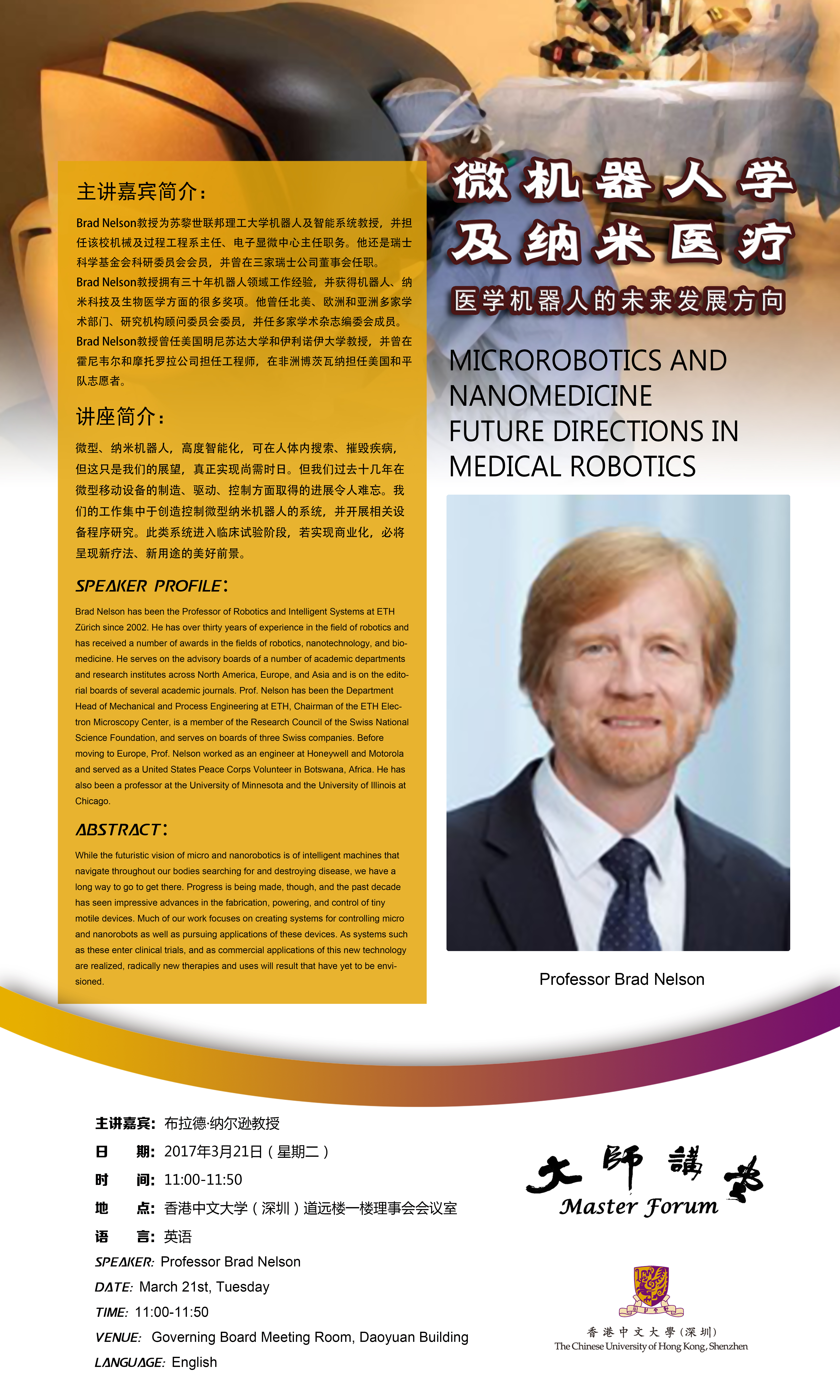【Master Forum】Microrobotics and Nanomedicine: Future Directions in Medical Robotics

Topic: Microrobotics and Nanomedicine: Future Directions in Medical Robotics
Speaker: Professor Brad Nelson
Date: Tuesday, 21 March 2017
Time: 11:00-11:50
Venue: Governing Board Meeting Room, Dao Yuan Building
Language: English
Speaker Profile:
Brad Nelson has been the Professor of Robotics and Intelligent Systems at ETH Zürich since 2002. He has over thirty years of experience in the field of robotics and has received a number of awards in the fields of robotics, nanotechnology, and biomedicine. He serves on the advisory boards of a number of academic departments and research institutes across North America, Europe, and Asia and is on the editorial boards of several academic journals. Prof. Nelson has been the Department Head of Mechanical and Process Engineering at ETH, Chairman of the ETH Electron Microscopy Center, is a member of the Research Council of the Swiss National Science Foundation, and serves on boards of three Swiss companies. Before moving to Europe, Prof. Nelson worked as an engineer at Honeywell and Motorola and served as a United States Peace Corps Volunteer in Botswana, Africa. He has also been a professor at the University of Minnesota and the University of Illinois at Chicago.
Abstract:
While the futuristic vision of micro and nanorobotics is of intelligent machines that navigate throughout our bodies searching for and destroying disease, we have a long way to go to get there. Progress is being made, though, and the past decade has seen impressive advances in the fabrication, powering, and control of tiny motile devices. Much of our work focuses on creating systems for controlling micro and nanorobots as well as pursuing applications of these devices. As systems such as these enter clinical trials, and as commercial applications of this new technology are realized, radically new therapies and uses will result that have yet to be envisioned.




